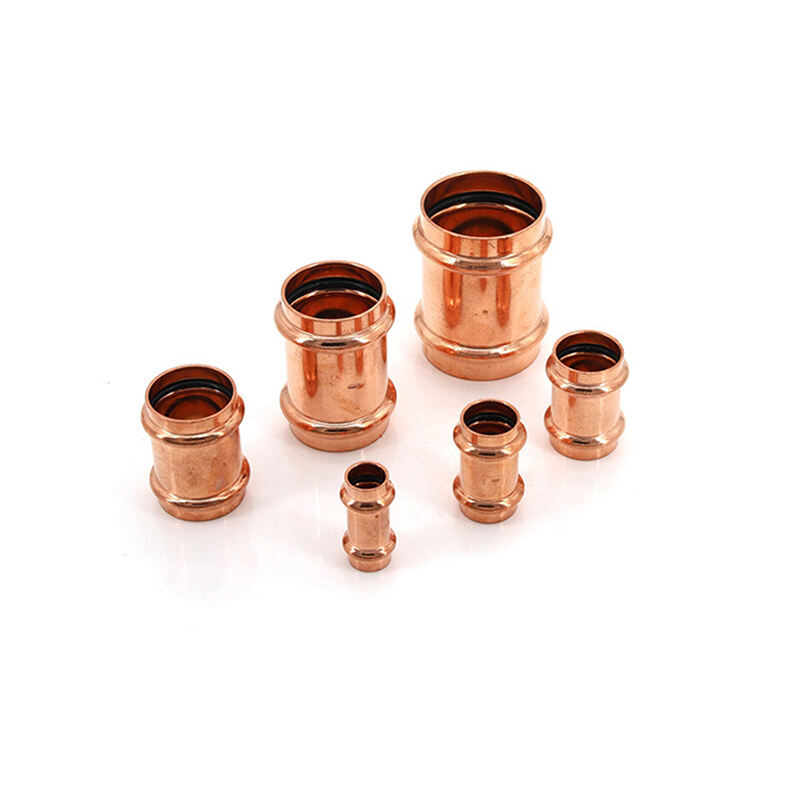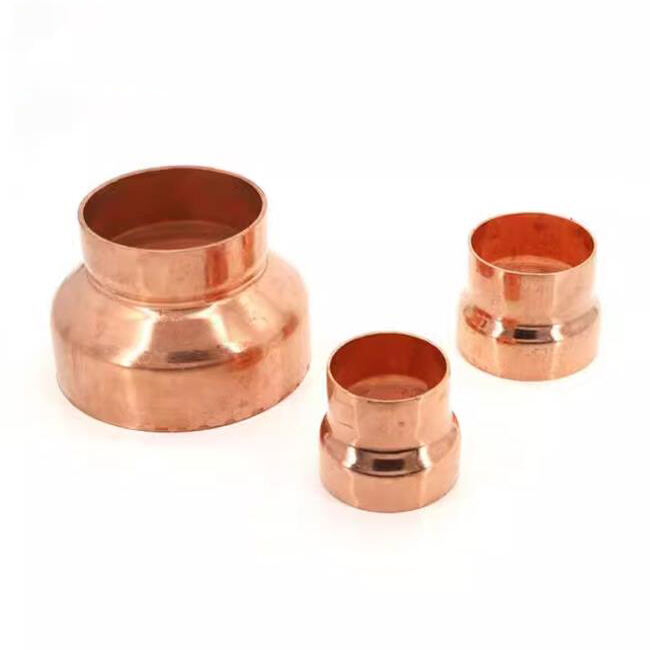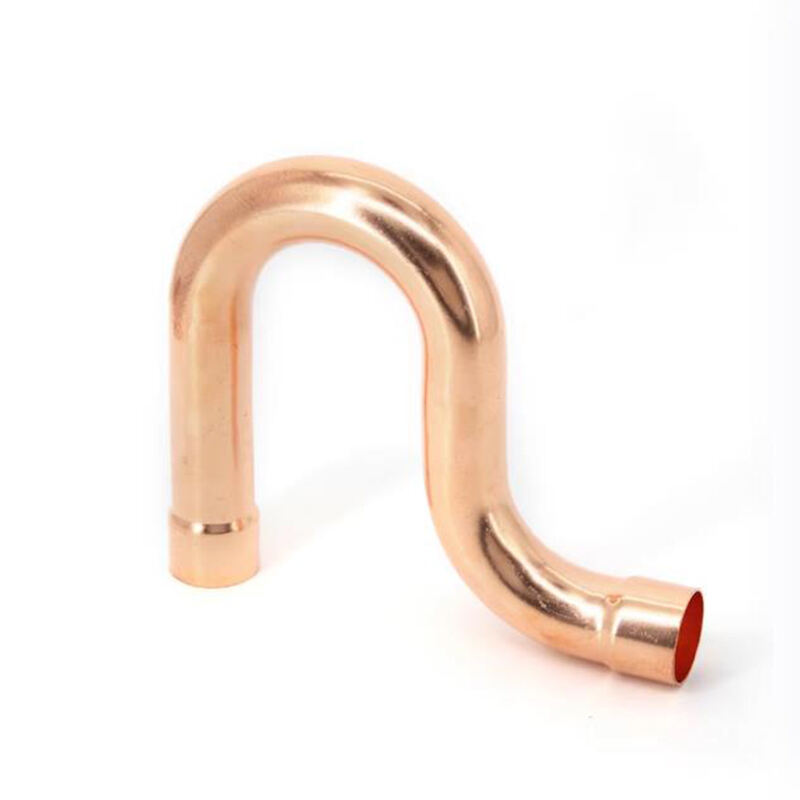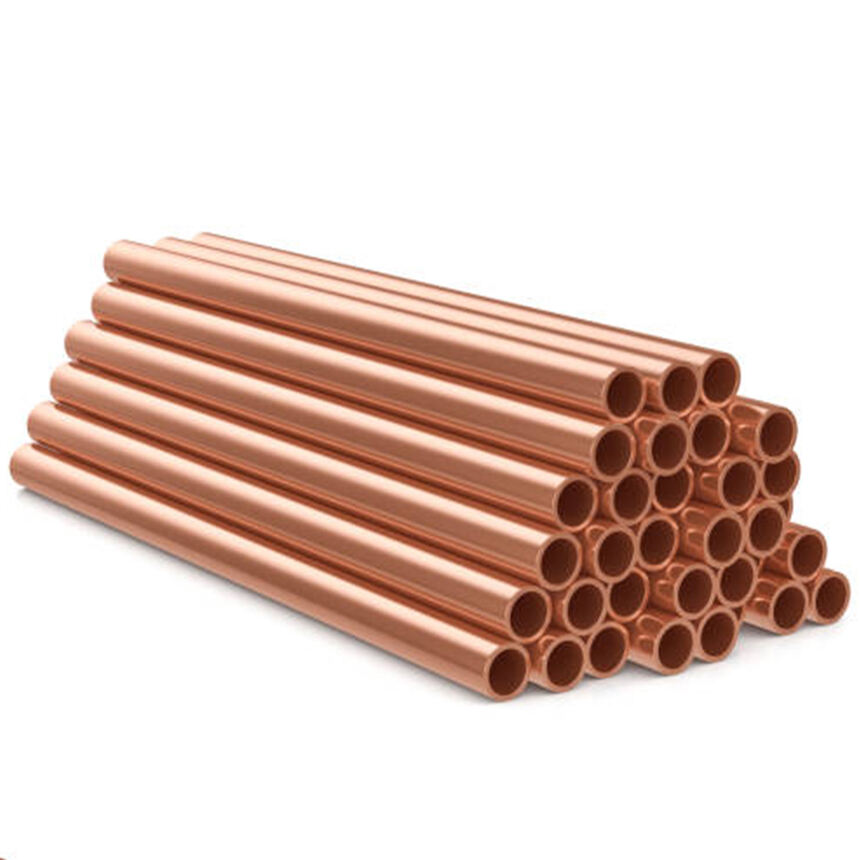Durability and Longevity in Industrial Applications
Withstanding Extreme Temperatures and Pressures
In industrial applications, copper pipes just keep getting the job done because they're built tough. These metal tubes handle temperature extremes pretty well too, working reliably even when things get as cold as minus 40 degrees Celsius or heat up past 200 degrees. That makes them work great in all sorts of different environments across manufacturing plants. Another big plus is how these pipes stand up against high pressure situations, something that comes up often in many factory operations. When plumbers install them properly, copper pipes typically last way beyond half a century according to industry data from multiple sources. The extended service life means fewer interruptions for maintenance crews and lower replacement costs in the long run, which adds up to real money saved for plant managers who track expenses closely.
Resistance to Wear and Environmental Stressors
Copper has some pretty amazing natural qualities that make it stand up well against corrosion and rust, which helps it last much longer than many other materials in different settings. Most metals would break down over time when hit by sunlight or extreme temperatures, but copper just keeps going strong. That's why we see so many copper pipes installed outside buildings or in places where they get direct exposure. Real world tests show these pipes don't wear out fast even in rough conditions like industrial zones with lots of dust and chemicals flying around. This kind of toughness makes copper a go-to material for engineers working on projects that need dependable performance day after day, especially in areas where weather can be unpredictable. Plus, the connectors used with copper pipes are built to last too, which adds an extra layer of protection to entire plumbing systems in tough environments like chemical plants or coastal facilities.
Corrosion Resistance for Long-Term Reliability
Performance in Harsh Chemical Environments
Copper pipes stand up really well against corrosion, even when faced with tough chemical environments, which means they last longer in industrial settings. Most other materials just don't hold up as well over time, so copper becomes the go to option for places where corrosive substances are common. Studies show copper can resist all sorts of harsh chemicals, cutting down on problems like breakdowns or leaks. The EPA and other regulatory bodies actually recommend copper piping because it lasts through tough conditions without losing strength or shape. This makes sense both from a safety perspective and for reducing maintenance costs in the long run.
- Copper pipes maintain performance integrity in environments with harsh chemicals, unlike many alternative materials.
- Research shows that copper has a high resistance level to a range of corrosive agents, ensuring reliability.
- The use of copper has been endorsed by various environmental agencies for its durability in challenging conditions.
Minimal Maintenance Requirements Over Time
Copper pipes stand out because they're pretty tough and don't corrode easily, so they need very little maintenance throughout their lifespan which makes them really reliable in the long run. When we compare copper to plastic or steel options, there's no contest really copper needs way fewer checkups and repairs, saving money on those maintenance bills. The numbers back this up too some places report cutting down on yearly inspections by half or more while still getting great performance from the system. Studies done over years show that copper installations work reliably for decades and cut down on all those repair costs that pile up over time. For most people looking at what makes sense financially across different uses, copper just comes out ahead when considering both upfront costs and what things look like five, ten years down the road.
- Due to its corrosion resistance, copper pipes require less frequent maintenance compared to plastic or steel alternatives.
- Statistics reveal that annual service checks on copper pipes can reduce by 50% due to their robustness.
- Long-term studies support that copper installations yield significant cost savings on maintenance over time.
In conclusion, copper pipes provide a reliable solution for industrial applications due to their exceptional corrosion resistance and low maintenance needs, delivering both performance and economic benefits.
Superior Thermal Conductivity for HVAC Systems
Efficient Heat Transfer in Industrial Processes
Copper conducts heat so well that it makes HVAC systems work much better at transferring heat, which cuts down on running costs. Studies looking at how different materials handle heat keep showing copper beats alternatives such as aluminum in actual heat transfer performance. The good thing is this means less energy gets used overall. Plus, copper doesn't wear out as fast because it handles temperature changes without breaking down from all that stress. Industrial facilities that switch to copper piping for their heating and cooling systems typically see lower electricity bills month after month. And these systems tend to last longer too since they aren't fighting against inefficient heat distribution problems.
Compatibility with Brass Plumbing Fittings
Copper pipes work really well with brass fittings, giving plumbers lots of options when setting up systems throughout buildings. The way they fit together actually cuts down on friction loss inside the pipes, which means water moves through more efficiently. Most people who install these systems talk about how good it is to pair copper with brass because the connections just seem to click into place without leaks or issues. When copper and brass are used together, water flows better and the whole system lasts longer before needing repairs or replacements. This combination has become pretty standard across different industries since it saves money over time while requiring less maintenance compared to other materials commonly used in plumbing setups.
Sustainability and Recyclability of Copper Materials
Infinite Recyclability Without Quality Loss
What sets copper apart in sustainable building materials is how it can be recycled endlessly without losing any quality. Builders and manufacturers love this because they get to reuse copper time after time across different projects. Industry data shows something pretty impressive too most of the copper mined throughout history is still being used somewhere today around 80%, if we're talking exact numbers. That speaks volumes about copper's lasting usefulness and green credentials. Compared to materials that degrade when recycled, copper just keeps giving back, which explains why architects and designers keep coming back to it for everything from plumbing systems to decorative elements in eco-friendly buildings.
Reduced Environmental Impact vs. Plastic Pipes
Copper pipes actually beat plastic ones when we look at their impact on the environment. Plastic pipes tend to pile up in landfills after they're used once, while copper can be recycled over and over again, cutting down on carbon emissions significantly. Studies show copper lasts much longer than plastic alternatives, so there's no need to replace them every few years like plastic pipes typically require. This durability makes sense for anyone concerned about sustainability. Lifecycle analysis also shows copper installations produce far less waste overall compared to plastic systems. That's why many plumbers and builders are turning to copper these days, especially for projects where environmental responsibility matters most.
Fire Safety and Health Advantages Over Alternatives
Non-Combustible Properties in Building Codes
The construction industry really likes copper pipes because they won't catch fire easily, which makes them work great with all those strict fire safety rules most buildings have to follow. Plastic pipes can melt and burn pretty quickly, but copper has this super high melting point around 1085 degrees Celsius. That means when there's a fire somewhere in a building, copper pipes help slow things down instead of speeding them up. Studies looking at actual buildings show that places with copper plumbing tend to have fewer problems with fires spreading through the system compared to buildings using other materials. For this reason, newer building codes across the country are starting to favor copper over alternatives, especially in areas where fire risk is a big concern. Contractors know this stuff matters, which is why we still see copper being specified for critical parts of building infrastructure despite rising costs.
Eliminating Microplastic Contamination Risks
When it comes to fighting microplastics in our water, copper pipes stand out from plastic alternatives that are increasingly problematic. The metal naturally fights off bacteria growth because of its inherent properties, which means cleaner tap water overall. Research into water quality shows copper actually helps boost safety standards since it cuts down on all sorts of contaminants floating around in the system. Around the world, public health organizations consistently rank copper above plastic when talking about reducing dangerous stuff in drinking water. For homeowners concerned about both their family's wellbeing and what's best for the planet long term, switching to copper makes a lot of sense beyond just theoretical benefits.









